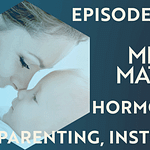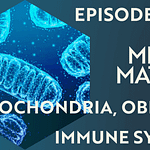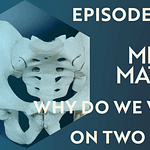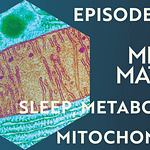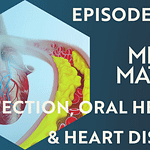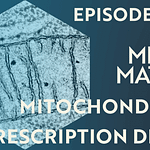Wide release date: September 26, 2025. Note: technical difficulties affected the audio quality of this recording somewhat.
Episode Summary: Dr. Jacob Raber explains how apolipoproteins, particularly ApoE, influence brain health and disease risk; their role in cholesterol metabolism, Alzheimer’s disease, and responses to environmental stressors like radiation and viral infections; interplay between genetics, diet, and lifestyle factors, highlighting how these affect cognitive function and resilience to stress; research into space radiation, the gut-brain axis, and potential interventions for neurodegenerative diseases.
About the guest: Jacob Raber, PhD, is a neuroscientist at Oregon Health & Science University (OHSU) in Portland, where he leads a lab studying genetic and environmental influences on brain health, particularly using mouse models with human genes.
Discussion Points:
Apolipoproteins (ApoE2, E3, E4) are proteins involved in cholesterol and lipid metabolism in the brain, with ApoE4 increasing risks for Alzheimer’s and cardiovascular disease.
ApoE4 carriers may face higher risks for cognitive decline but could have advantages in specific contexts, like fertility or certain infections.
Environmental stressors, such as space radiation and viral infections like West Nile, can exacerbate oxidative stress, impacting brain health.
The gut microbiome influences brain function indirectly via the gut-liver-brain axis, with ongoing studies exploring its role in Alzheimer’s and traumatic brain injury.
Lifestyle factors like diet, exercise, and sleep are critical for brain health, potentially mitigating genetic risks like ApoE4.
Statins, commonly used for cholesterol management, may impair learning in healthy animals, suggesting context-dependent effects.
Research into space radiation reveals potential therapeutic applications, such as using heavy ion radiation for cancer treatment.
Genetic variations, including ethnicity and sex, influence ApoE-related disease risks, with women and certain populations showing higher Alzheimer’s susceptibility.
Chronic low-level stressors, like air pollution, may pose greater risks to brain health than acute exposures due to insufficient activation of protective mechanisms.
Reference Paper:
Study: ApoE Isoform-Dependent Effects on Extinction of Contextual Fear Memory and Passive Avoidance Memory
Related content:
M&M 165: PUFAs in Brain Health & Disease, Dietary Fats, Brain Lipids, Nutrition | Richard Bazinet
*Not medical advice.
Full video version: [YouTube]
Support M&M if you find value in this content.
Episode transcript below.
Episode Chapters:
00:00:00 Intro
00:01:30 Guest Introduction & Lab Overview
00:07:17 Apolipoproteins & Brain Function
00:15:09 Environmental Stressors & ApoE
00:23:09 Space Radiation & Cognitive Impact
00:33:00 Statins & Brain Health
00:38:07 Viral Infections & Brain Changes
00:47:09 Gut-Brain Axis & Microbiome
00:49:17 Brain Health Tips & Closing
Full AI-generated transcript below. Beware of typos & mistranslations!
Listen to this episode with a 7-day free trial
Subscribe to Mind & Matter to listen to this post and get 7 days of free access to the full post archives.






